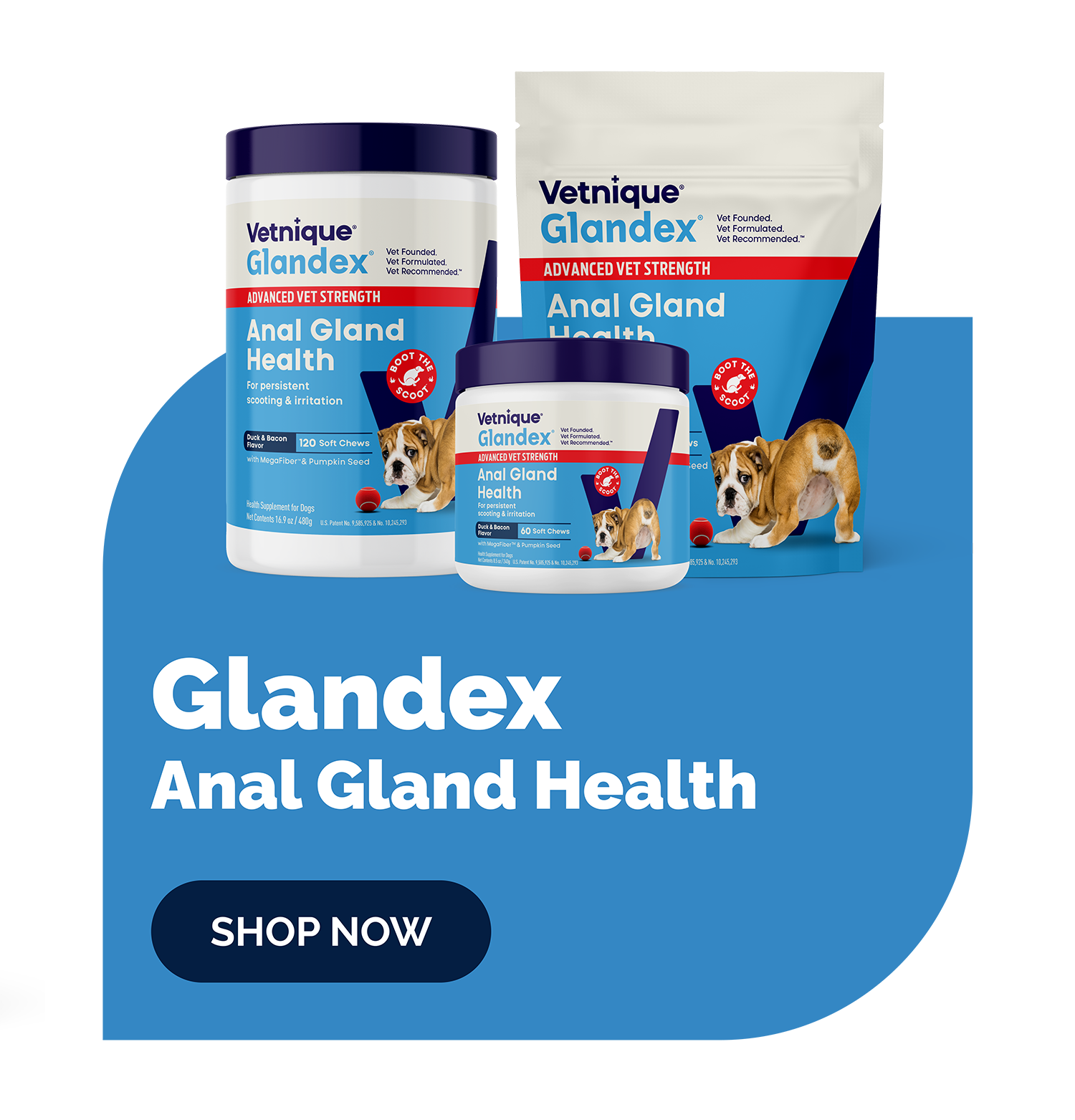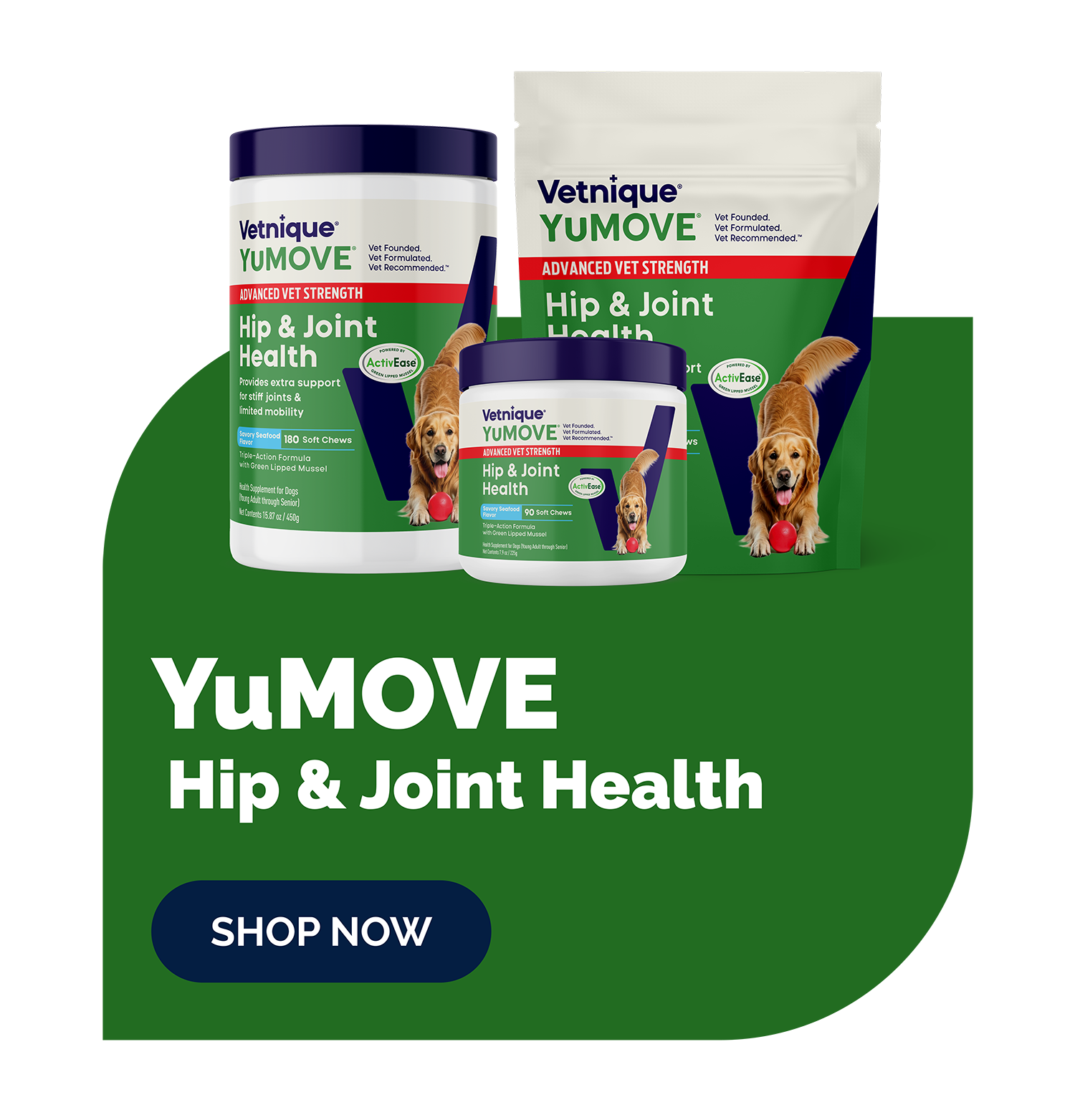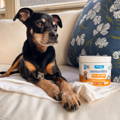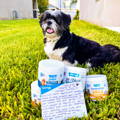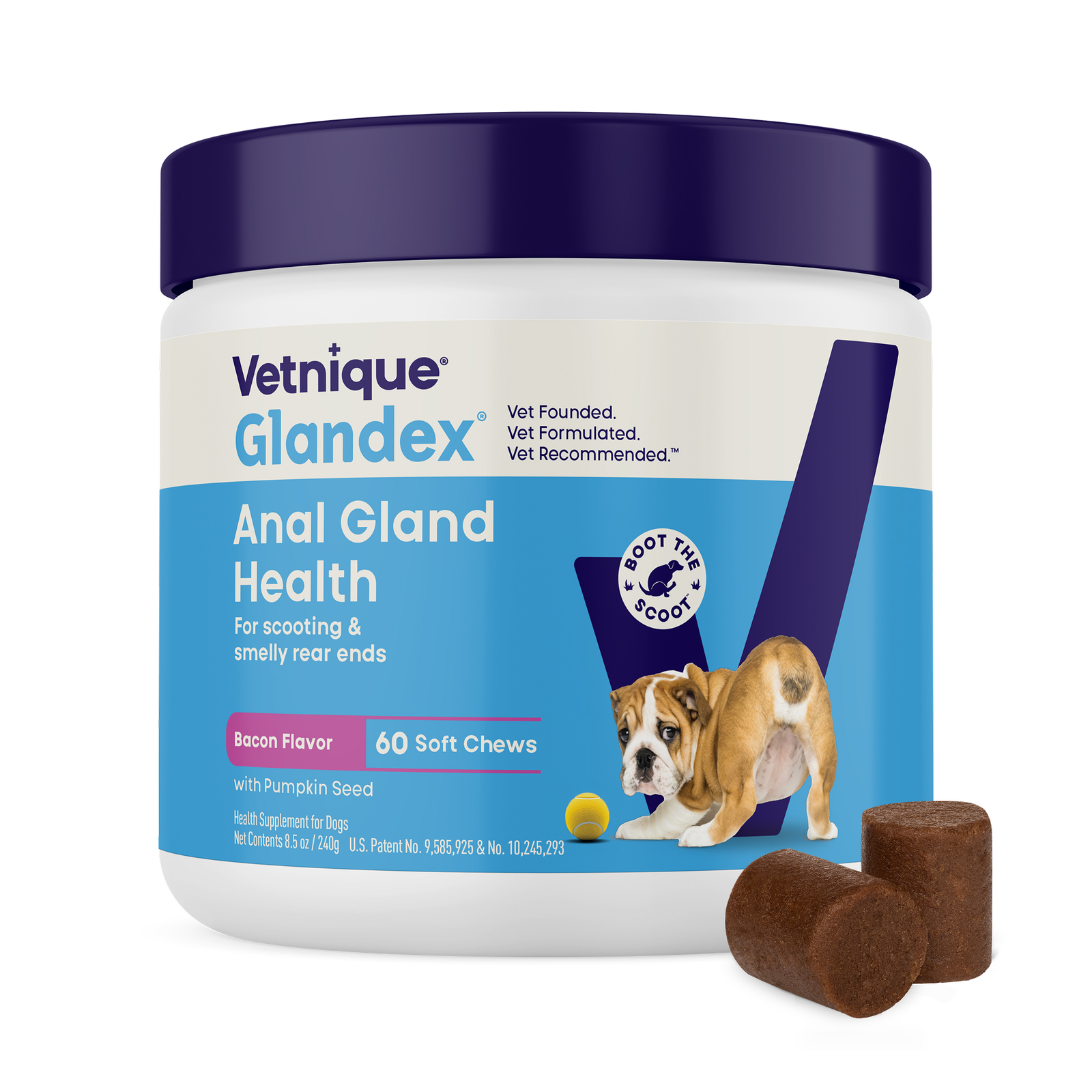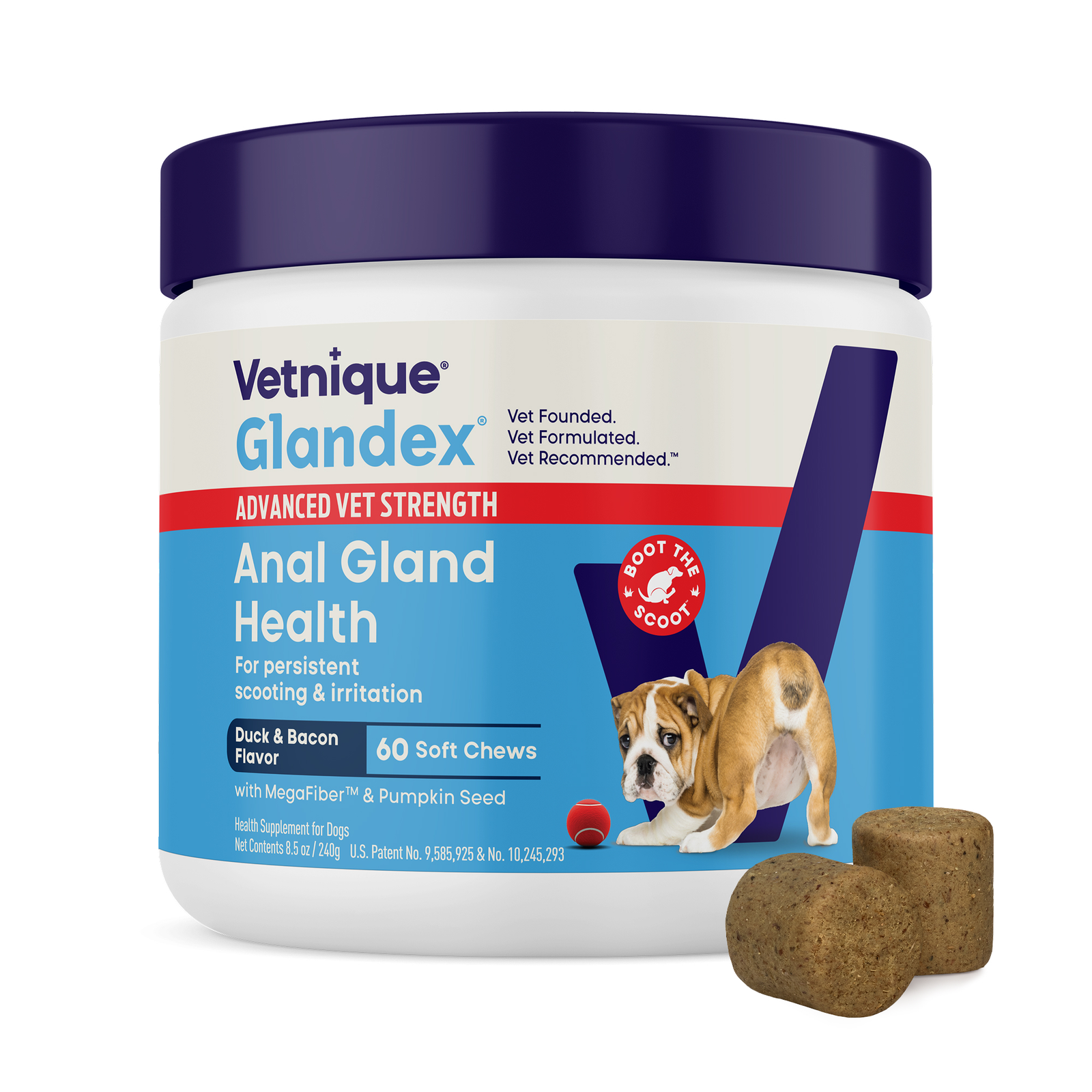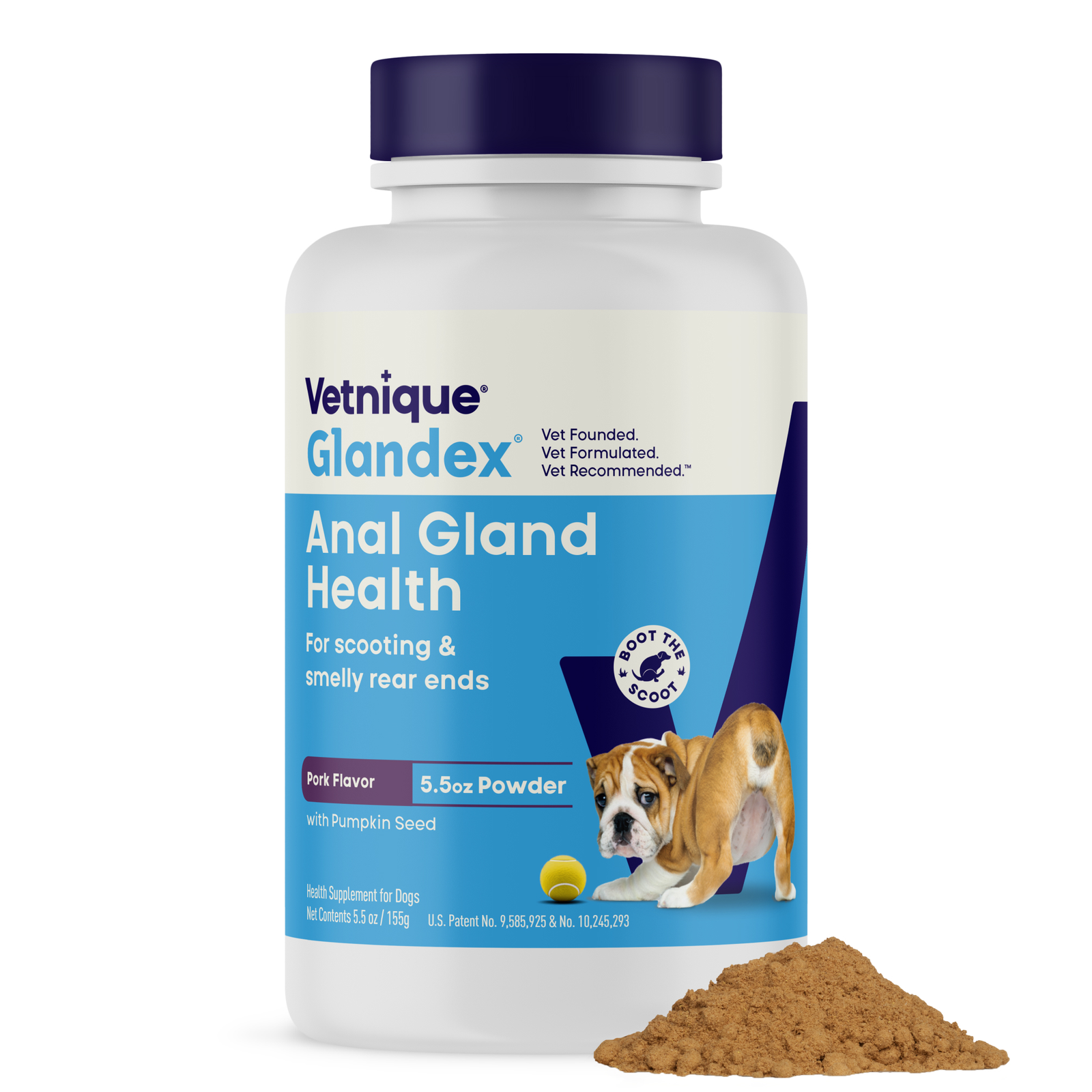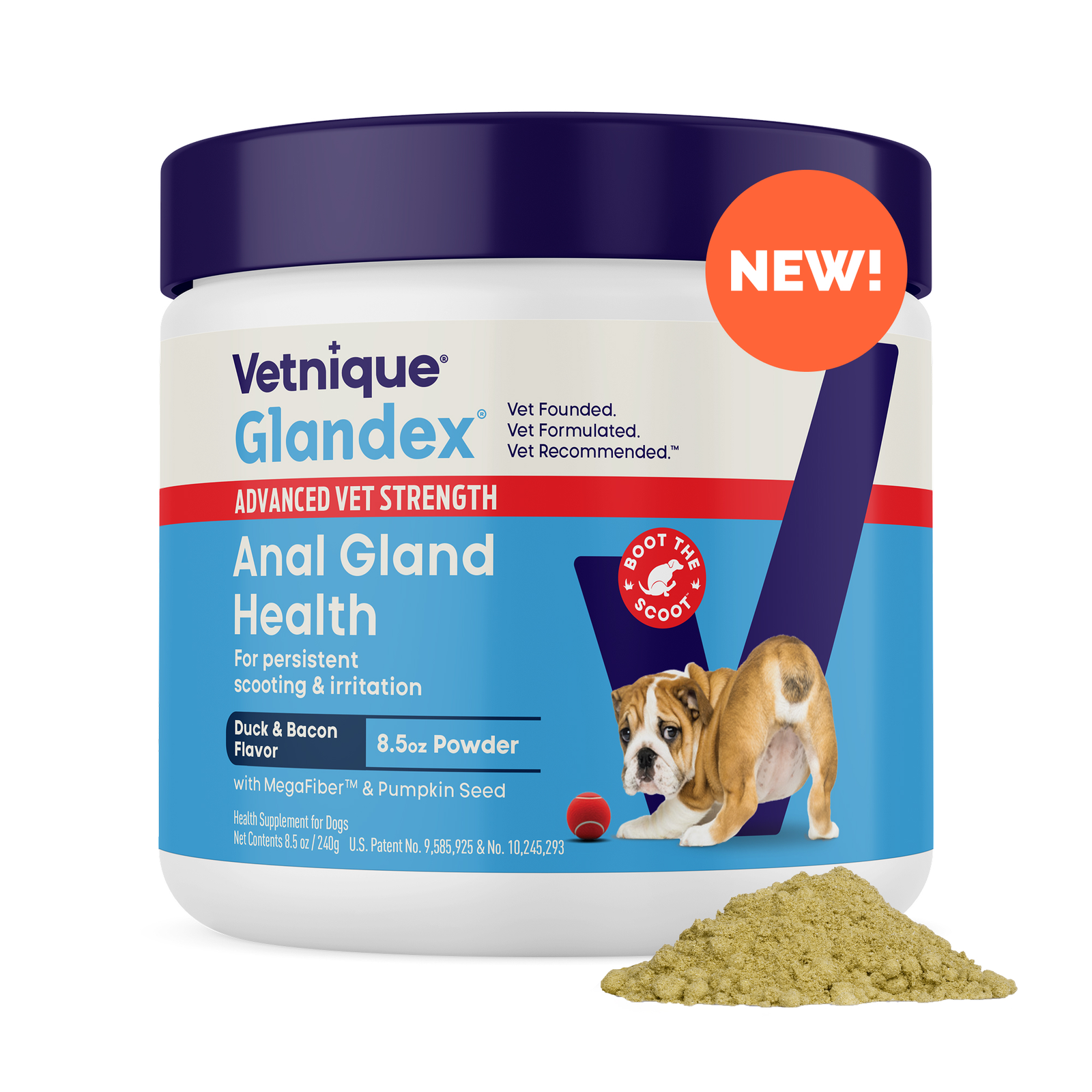Do Probiotics Help Dogs with Diarrhea?
Vet Verified
WRITTEN BY DR. JOYA GRIFFIN
Jump to Section

If your dog is having diarrhea, it’s time to do a gut check! Have they eaten any new foods lately? Have they had an infection or suffered from allergies? A variety of things could be causing your dog’s diarrhea, and it’s important to start looking for answers as soon as issues start. Diagnosing an issue in pets can take time, just as it can in humans!
While your dog has an upset tummy and you’re trying to figure it all out, you can do what I advise my clients to do: try probiotics. Probiotics may ease discomfort and are vital in restoring a healthy, happy gut. Let’s explore what probiotics are for dogs with diarrhea, and get to the bottom of how to treat it.
What are probiotics for dogs?
A dog’s gut is a community of microorganisms. It needs “good” bacteria to mingle with the “bad” to keep the stomach and the rest of the digestive system in check. Think of probiotics as helpful supplements that contain beneficial bacteria to support healthy digestion and boost their immune system.
Probiotics come in various forms:
- Powder: Usually sprinkled on your dog’s food, and can be given daily based on your dog’s weight.
- Chews: These can be given daily based on your dog's weight, and might be more appealing to some dogs since they have a similar consistency as a treat.
- Capsules/Tablets: These types of probiotics can be hidden in a treat or mixed into their food. If your dog is picky, you might need to use a pill-hiding treat or a bit of peanut butter to help them take it more readily.
- Liquid: These types of probiotics aren’t as common, but can be added directly to their water or food.
Pick what works best for you and your pup. Not all probiotics are created equal, and your dog might need to try a few options before finding one that’s palatable. When trying a new probiotic, be sure to follow package instructions closely to ensure you are giving the correct amount for your pet’s weight and set your dog up for the best results.
What are dog probiotics used for?
The average healthy dog should be able to maintain the balance of digestive microbes naturally. But during times of stress, illness, or malnutrition (due to low-quality food, a picky eater, poor appetite, etc.), an imbalance can throw things off. Then, it could be time to add probiotics to their diet plan.
Let’s start with the most common use of dog probiotics: diarrhea. Dogs can experience diarrhea due to diet changes, antibiotics or other medications, food allergies, or even stress. If you’ve seen your dog suffering from an upset tummy, probiotics for diarrhea can help balance that inner community of microbes and get their gut back on track.
Probiotics also can improve the way a dog digests their food. The team of good bacteria that probiotics introduce to their body helps them break down their food, so your dog can absorb and use its nutrients better. Probiotics can also help keep the gut lining in good shape and crowd out harmful bacteria that might cause bellyaches.
In a nutshell, you can think of probiotics as calming agents, there to soothe and support. While probiotics go straight to the gut, their effects can improve overall well-being.

Can probiotics help dogs with diarrhea?
Diarrhea can scramble up the balance of bacteria in your dog’s gut. By bringing in good bacteria, probiotics can reverse the upset and restore the balance. It’s important to remember, there may be an underlying issue to address. Diarrhea or changes in stool quality and frequency may be caused by diet changes, dietary indiscretion, or in some cases a food hypersensitivity or allergy. Diarrhea may also be a sign in some cases of internal disease.
Probiotics can soothe the symptoms of diarrhea and get the gut working more normally, but they can’t solve any larger issue. If diarrhea is chronic or excessive, your veterinarian should be consulted to avoid more serious problems like dehydration and to determine the cause. That’s what your vet is for!
How do probiotics help with diarrhea?
Sometimes, diarrhea means that food is moving too quickly through the intestines. When that happens, your dog’s system doesn’t have time to properly digest and absorb nutrients from their food. Probiotics keep the gut working smoothly by producing enzymes that assist in breaking down food. They also help in digesting complex carbohydrates, proteins, and fats more efficiently.
When a dog has diarrhea, there’s a chance that the intestinal lining will get inflamed. Some probiotics have anti-inflammatory effects to calm things down and keep the good bacteria thriving.
When a digestive system is working at its best, you’ve got slower, more comfortable passage of food through the intestines. And, essentially, better bathroom habits. Stools will become more regular and solidly formed.
Can probiotics cause diarrhea in dogs?
It’s possible that probiotics can cause upset, but it’s not very common. Here are a few reasons why it might happen:
- Adjustment period — Your dog’s digestive system might need time to get used to probiotics once you introduce them.
- Dosage issues — Be cautious of how much you’re giving them. Too much might lead to diarrhea.
- Strain-specific reactions — Not all probiotics are created equally. Some might not agree with every dog’s system.

What about probiotics for puppies with diarrhea?
Little ones should be handled with more care. Their systems are more fragile and still being developed. Yet, probiotics can serve a purpose holistically, in the same way they can for adult dogs. They can help restore a puppy’s gut balance (remember, we all need good bacteria!), support their digestive health, boost their immunity, and soothe their gut.
There are some special considerations for puppies. I always advise staying on the safe side and consulting with a veterinarian before offering probiotics to puppies, since they can recommend the appropriate type and dosage for your canine. Be sure to buy a variety that’s safe for puppies and monitor for any side effects. They’re always an adjustment period and any stool changes should be reported to your vet.
How can probiotics impact a dog’s digestive system?
Think of probiotics as pinch hitters when your dog’s gut needs a boost—and champions for their overall health.
Used short-term for bouts of diarrhea or gas, probiotics can alleviate discomfort and promote healthier stools. Used as an ongoing supplement, they can keep a gut balance in check for better, smoother digestion over time. That includes keeping inflammation down while keeping the immune system in strong working form (yes, a lot of the immune system is located in the gut).
What are the benefits of probiotics for dogs?
Probiotics help manage and alleviate diarrhea in several ways: by rebalancing the gut’s bacteria, improving digestion, soothing inflammation, supporting the gut lining, and improving overall immune function. If your dog’s diarrhea sticks around, don’t panic: Just check in with your vet to find out the underlying cause and get the best advice for treatment.
Bottom line: If you think your dog is suffering from tummy upset, you should trust your gut—and work to improve theirs. With probiotics being easy to access and feed to your four-legged friend, it’s a building block worth keeping in your household stack.
